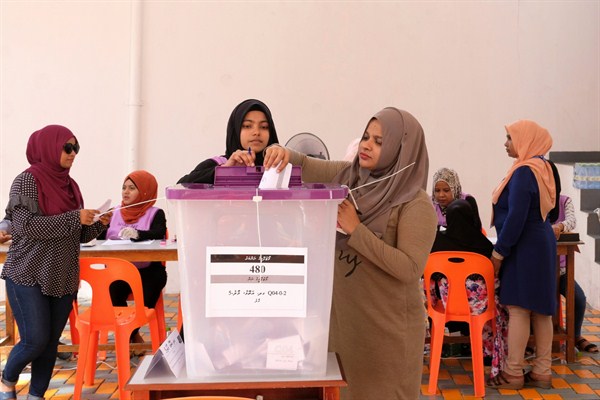President Ibrahim Solih’s Maldivian Democratic Party scored a historic victory in parliamentary elections in the Maldives earlier this month, winning 65 of 87 seats in the legislature, known as the People’s Majlis. Those results clear the way for Solih’s attempts to account for the debts incurred by his corrupt and autocratic predecessor, Abdulla Yameen, who courted hundreds of millions of dollars in Chinese infrastructure investment during his time as president and is now facing money laundering charges. In an interview with WPR, David Brewster, a senior research fellow at the Australian National University’s National Security College, discusses the significance of this month’s election results for Solih going forward.
World Politics Review: How much of a surprise was the landslide victory by the Maldivian Democratic Party, and given the party’s anti-China platform, how much of a rebuke was it to Chinese interests in the Maldives?
David Brewster: This month’s landslide victory by President Ibrahim “Ibu” Solih’s Maldivian Democratic Party, or MDP, together with Solih’s overwhelming victory in the presidential election last September, is an example of democracies reacting against what they see as corrupt regimes. The MDP’s performance strongly consolidates the country’s democratic turn that began last year. Democratic institutions in the Maldives—and also in neighboring countries like Sri Lanka—may be stronger than many expected.

